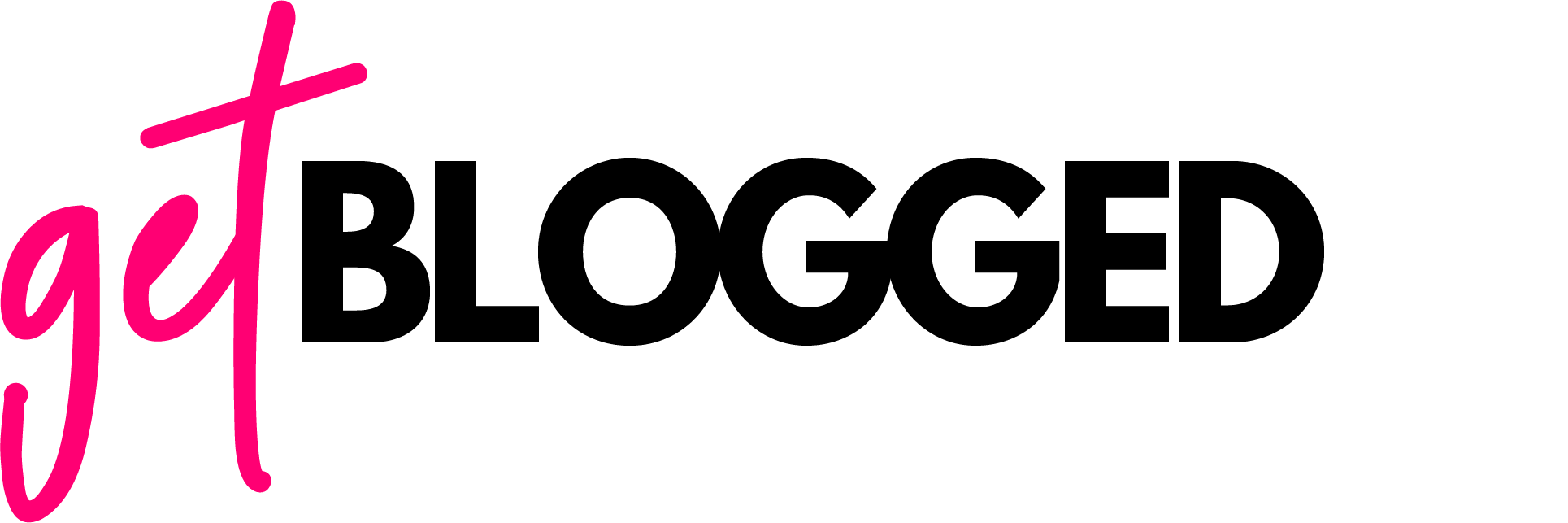It might sound obvious, but improving the effectiveness of your written content is one of the single most powerful things you can do as a blogger.
Better content creates a stronger and more meaningful relationship with your readers, it makes your site way more attractive to brands, and it can drastically increase the return on pretty much any monetisation strategy you could ever use – from affiliate marketing, to selling your own digital products, to running display ads.
But ‘write better content’ is ambiguous advice, isn’t it?
It’s one thing to want to create better posts, but knowing exactly how to do it is a different kettle of fish entirely.
So here are 8 practical ways to actually improve the quality of your content…
1. Read your content out loud, then edit accordingly
Does it flow naturally?
Does it sound like ‘you’?
Is it akin to a chat you’d have with a friend or a work colleague when you’re telling them the ins and outs of a subject that you’re really passionate about?
Or does it feel a bit stiff and stilted?
You probably don’t want your blog to read like a dry academic essay. You want it to be an engaging conversation with your readers, so reading it aloud is one of the most effective ways to check if you’ve got this covered, and ensure that you’re creating a consistent voice that your audience will come to recognise and connect with.
Some people prefer to speak their content out loud and transcribe it to make sure they’ve got this covered, and others prefer to come back and edit it afterwards.
Either way, it can make a huge difference to how your content reads and how it connects with your reader.
2. Use ‘power words’
Some of the best copywriters in the world swear by this technique, and if it’s good enough for them, it’s good enough for us.
Put simply, power words are those that carry their own emotional wallop. They create a bit of drama, and they make people actually feel something when they read them.
Want to know what they are? Google ‘John Carlton Power Words’. You’ll find a swipe file packed full of them that you can start weaving into your content.
Using them all the time in every single post you create might be overkill, but they’re absolute gold when it comes to writing blog post titles, email subject lines, and text for social media graphics such as Pins.
Here’s how to use them, in practical terms: Write out the headline to your next blog post. Don’t overthink it, just type the words out so you have an overview of what your content is going to be about.
Then refer to the power words, and use them to replace what you’ve got on the page.
For example, let’s say you’ve jotted down that your post is going to be ‘an interview with the best bloggers’.
Using power words, you could flip that to ‘up close and personal with the elite bloggers in your industry’. Or ‘crack the money code – the secrets of the most respected names in lifestyle blogging’.
Or if you were going to write about ‘why I no longer buy fast fashion’, you could flip that into ‘thanks but no thanks – why I’m sick and tired of reckless fast fashion’.
See what we mean? Switching your content up with some power words takes the same subject and makes it a hundred times more compelling and influential.
3. Dig out your thesaurus
This point works in much the same way as power words, but is probably more applicable to your day to day content creation, rather than just headlines and social media graphics.
Becoming obsessed with the English language is a sure fire way to improve your writing, and regularly digging into a thesaurus gives you more effective ways to convey your ideas and your message.
So get into the habit of going back over your content and using a thesaurus to find better words.
Let’s take a look at another example, and imagine that want to use the word ‘walk’ in your content.
A thesaurus tells us that some alternatives, for walk as a verb, include stroll, saunter, amble, trudge, wander, and patrol.
Instead of telling your readers that you took a walk through your local park, you could tell them that you went for a wander. It’s more whimsical, more relaxed, more likely to conjure up images of a peaceful couple of hours of gentle exploration.
Maybe you’re using walk as a noun. Then your alternatives include excursion, hike, march, outing, and ramble.
Rather than writing about taking your dog for a walk, you can share about how you marched him down to the river. The word holds more urgency, more intention, and is more fitting when you’re trying to convey that you were short of time, or that you were full of nervous energy that day.
Sure, this might seem like a lot of work and a lot of consideration for just one word of your content, but the right word can totally change the tone and the effectiveness of what you’re trying to say. It can add more of your own voice and style, and contribute to copy that resonates more with your readers and keeps them coming back for more.
Of course, you definitely don’t need to do this with every single word you use. But here and there, it can make a big difference to your overall message.
4. Write drunk, edit sober
Not literally.
But if you sometimes struggle with getting started with your posts, this can be a revelation.
The idea here is that you just start writing. Even if it’s a load of rubbish, even if you know it’s nowhere even close to what you’d be happy to publish.
You just start with your topic in mind and start typing. You don’t overthink it, you just let the words spill out.
Do it for as long as you can.
After maybe 5 minutes, you’ll start unearthing the real gold. And you go back and edit out the nonsense later.
This frees you from the pressure to crank out your best content right off the bat, and is a great technique for overcoming writers’ block and getting your best ideas on the page.
5. Be strategic with your call to action
A call to action involves telling your readers what you want them to do next.
Whether it’s to join your Facebook group or join your email list or something completely different, each post presents an opportunity to further grow your readership and keep them coming back to you.
Are you actually including a call to action? If you are, is it aligned with your strategic goals?
Remember too that you don’t always have to leave it right until the very end of your post. Experiment with including it closer to the beginning, and monitor what the results are.
6. Read more. Not just for the sake of it, but with intention
‘Read more’ is a very common piece of advice that you’ll often hear when it comes to improving your writing, but taken at face value, it’s not particularly helpful.
You could read a thriller every week of the year for the rest of your life, but it’s not necessarily going to make you the next bestselling author in the genre.
Reading more becomes helpful in becoming a better writer when you read with intention, instead of simply for enjoyment.
It’s all about reading with a critical eye, with your creator hat on, and asking yourself why the words and the structure and the stories are so effective, and applying the lessons you’ve learned to your own content creation.
This is what this could look like, in practical terms, as a blogger…
- Next time you click on a blog post that you see on social media, ask yourself why it caught your eye and what made you want to read more. Why was the title or the image so compelling?
- Next time you open an email in your inbox, consider why you clicked. Why was the subject line so effective?
- Think about the blogs that you read again and again. What makes you go back for more?
- If a piece of content successfully urges you to take action – whether that be to buy a product, or subscribe to an email list, or join a Facebook group – question why. How did the writer take you through a process that lead to that decision?
These are small actions that you can take every day, and every single one of them will have a lesson to learn about how to make your own content more effective.
7. Make it your business to overcome your readers’ objections
As a blogger, it’s safe to assume that you’re selling something.
This could be in the literal sense, if you’re recommending affiliate products or services, or you have some kind of digital product that can be purchased via your site.
But even if we’re not talking in the literal sense, or if the word ‘selling’ makes you a bit uncomfortable, the very essence of being a content creator means that you are indeed selling something.
As a blogger writing about things to do in a particular town, for example, you’re selling the idea that the places you’re showcasing are worthy of a visit.
Whenever there’s something to sell, there’s an objection to overcome.
The five most common objections are these:
- I don’t have the time
- I don’t have the money
- It won’t work for me
- I don’t trust you
- I don’t need it
Keeping these objections in mind, and regularly taking steps to help your readers to overcome them, will make your content way more persuasive and effective.
What this looks like in practical terms will vary massively depending on what it is you’re selling, but let’s take a look at a few examples…
Perhaps you’re encouraging your readers, who are typically busy professionals, to cook from scratch at home using a recipe delivery box instead of ordering takeaway or visiting a restaurant.
It’s fair to assume that these people will be time poor, and convinced they just don’t have the hours in the day. They might also be convinced that they’re just not good cooks, and that they’d never be able to recreate restaurant quality food at home.
It’s important to realise that these objections will be in their minds when they’re reading your content. If you ignore they’re there, your audience are going to create their own stories around why they shouldn’t buy into what you’re sharing.
So how do you overcome the objections?
You can weave your objection busting into your blog posts, your social media content, and so on.
You can address them as points in larger pieces of content, or even create standalone pieces that tackle them.
Doing this can really improve your influence and persuasion, and lead to more sales of your own products and for the affiliate programmes you’re part of.
8. Get rid of big walls of text
One of the trickiest things about writing for the web is that it involves unlearning lots of the stuff that we were taught at school about what constitutes as ‘good writing’.
Though lengthy paragraphs have their place in the likes of academic essays and printed books, they don’t make for a good user experience when it comes to online content such as blog posts.
Research shows that the internet has made our attention spans shorter than ever before, and this poses a real challenge for content creators.
Want to keep your readers’ attention for as long as possible?
Make your content easy on the eye by breaking down your paragraphs into more manageable chunks (incidentally, this could also have a positive impact on your advertising network revenue).
Use headings liberally, put your key points in bold or italics, and perhaps most importantly, always remember to get to the point. Good editing often involves ruthlessly getting rid of any text that doesn’t absolutely need to be there.
Some final thoughts on becoming a better writer
Becoming a better writer isn’t a once-and-done kind of job.
It’s something that the best bloggers commit themselves to throughout their careers.
Having these kinds of tools and hacks in your kit though can really ensure that you’re improving all the time, and that you have actionable points to be working on.
Are there any extra tips that you’ve successfully used to improve your writing?
Want to save this post so you can come back to it later? Pin the image below on Pinterest.



 rated
rated












![6 ways to collaborate with bloggers this Thanksgiving [with case studies]](https://getblogged.net/wp-content/uploads/2022/10/pexels-rodion-kutsaiev-10060431-300x300.jpg)





